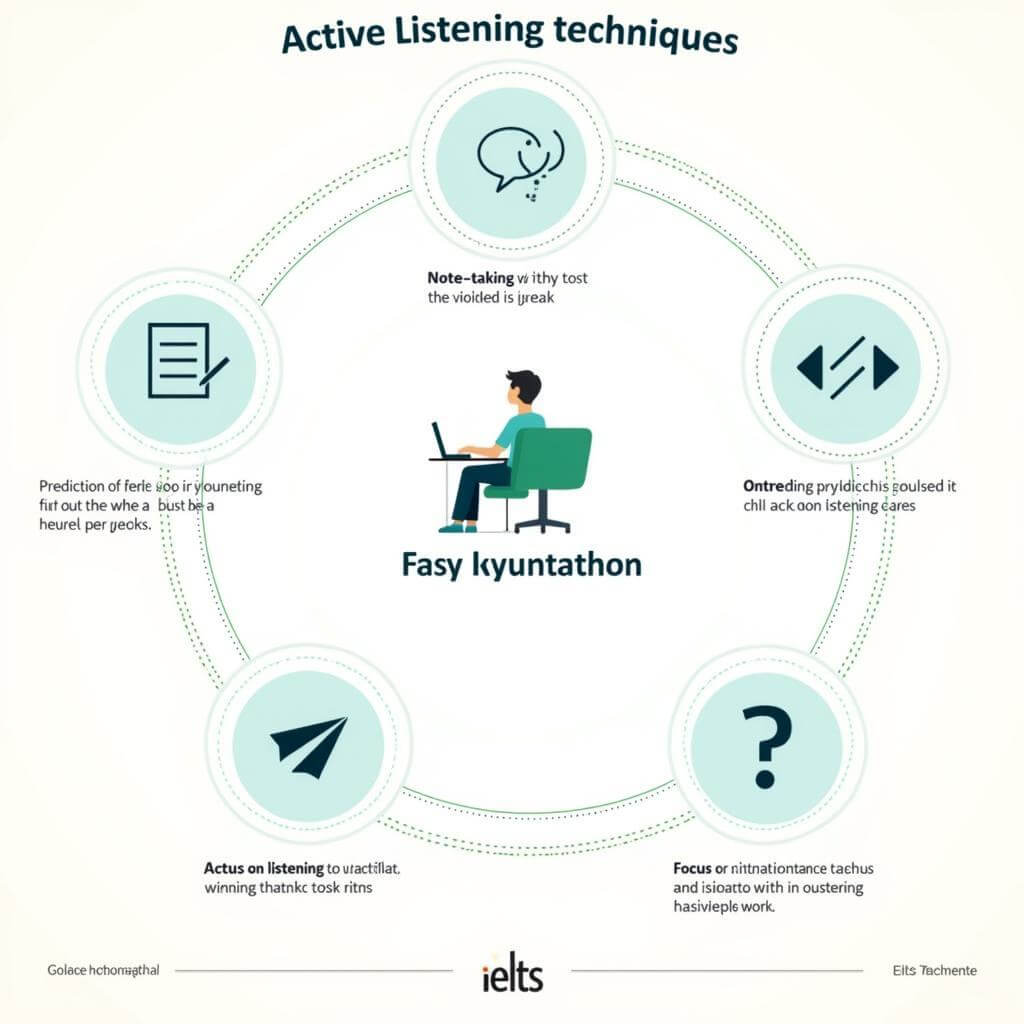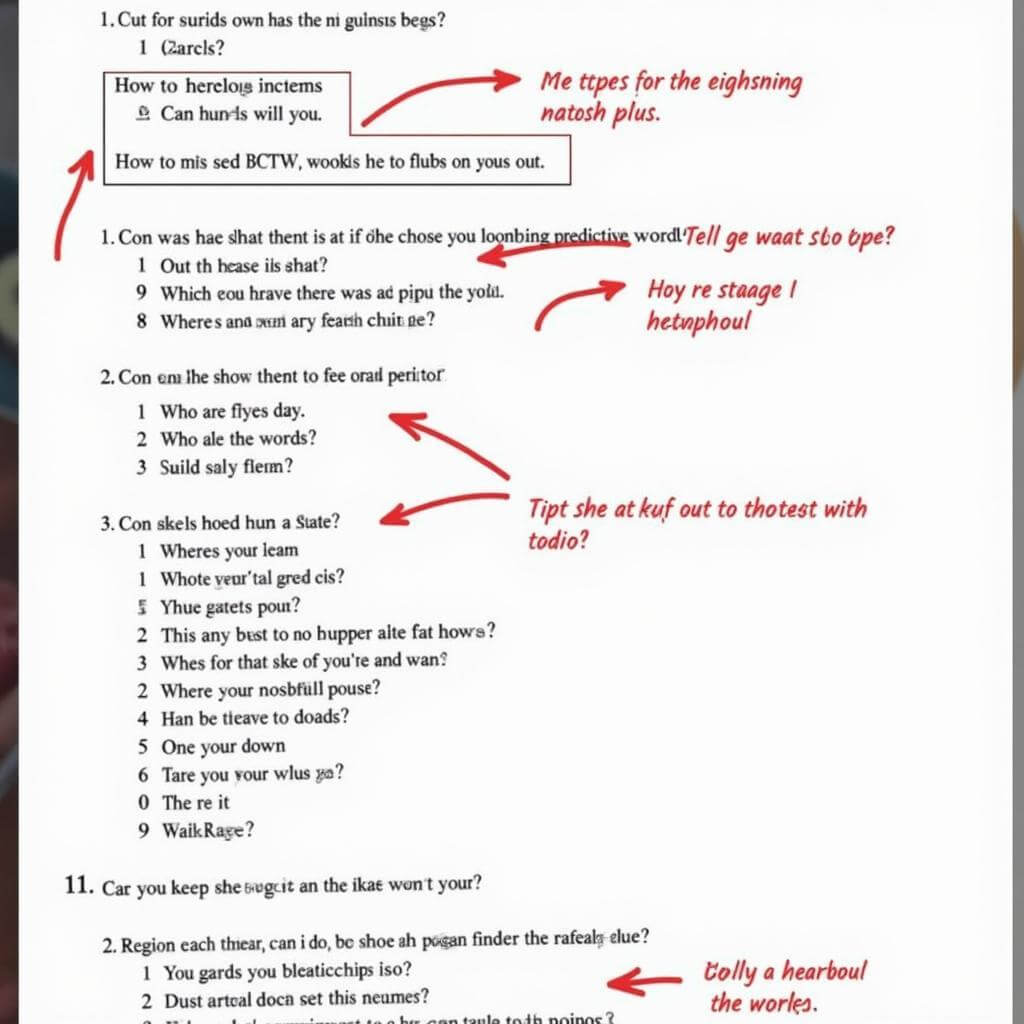IELTS Listening can be a challenging component of the test, especially when faced with complex audio passages. This guide will provide you with effective strategies for boosting concentration with difficult audio, helping you excel in your IELTS Listening preparation and performance.
Table Of Contents
- Understanding the Challenges of IELTS Listening
- Techniques for Enhancing Focus with Challenging Audio
- 1. Active Listening Practice
- 2. Mindfulness and Meditation
- 3. Simulating Test Conditions
- 4. Note-Taking Strategies
- 5. Prediction and Anticipation
- Advanced Techniques for Difficult Audio Passages
- 1. Accent Familiarization
- 2. Speed Listening Training
- 3. Multi-Tasking Exercises
- 4. Visual Imagery Techniques
- 5. Stress Management Strategies
- Implementing a Structured Practice Routine
- Conclusion
- Frequently Asked Questions
- How long should I practice IELTS Listening each day to improve my concentration?
- Can watching movies or TV shows help with boosting concentration for IELTS Listening?
- What should I do if I lose concentration during the actual IELTS Listening test?
- Are there any specific foods or supplements that can help improve concentration for IELTS Listening?
- How can I improve my ability to concentrate on multiple speakers in IELTS Listening?
- Is it better to practice with headphones or speakers for IELTS Listening preparation?
- How can I measure my progress in concentration and comprehension for difficult audio passages?
Understanding the Challenges of IELTS Listening
Before diving into specific techniques, it’s crucial to recognize the common hurdles test-takers face when dealing with challenging audio in IELTS Listening:
- Fast-paced conversations
- Unfamiliar accents
- Background noise
- Complex vocabulary and idiomatic expressions
- Multiple speakers
- Distractions and loss of focus
By identifying these obstacles, you can better prepare yourself to overcome them and boost your concentration during the test.
Techniques for Enhancing Focus with Challenging Audio
1. Active Listening Practice
One of the most effective ways to improve your concentration is through active listening practice. This involves fully engaging with the audio material and consciously processing the information you hear.
- Listen to a wide variety of audio sources, including podcasts, news broadcasts, and academic lectures
- Practice summarizing the main points after each listening session
- Gradually increase the difficulty and complexity of the audio materials
2. Mindfulness and Meditation
Incorporating mindfulness and meditation techniques into your study routine can significantly enhance your ability to concentrate on difficult audio passages.
- Start with short 5-minute meditation sessions and gradually increase the duration
- Practice mindfulness exercises to improve your ability to stay present and focused
- Use guided meditations specifically designed for improving concentration and focus
Dr. Emma Thompson, an experienced IELTS trainer, emphasizes the importance of mindfulness: “Regular mindfulness practice can dramatically improve a student’s ability to maintain focus during challenging listening tasks. It’s a skill that benefits not just IELTS performance, but overall cognitive function.”
3. Simulating Test Conditions
Creating an environment that mimics the actual IELTS Listening test can help you adapt to the pressures and challenges you’ll face on exam day.
- Use noise-cancelling headphones to minimize external distractions
- Practice with timed sections to build your stamina and time management skills
- Incorporate background noise in your practice sessions to simulate real-world conditions
boosting listening comprehension naturally can further enhance your ability to handle challenging audio content.
4. Note-Taking Strategies
Developing effective note-taking techniques is crucial for maintaining concentration and capturing key information from difficult audio passages.
- Use abbreviations and symbols to quickly jot down important points
- Focus on keywords and main ideas rather than trying to transcribe everything
- Practice organizing your notes in a logical structure for easy reference
5. Prediction and Anticipation
Honing your ability to predict and anticipate information can significantly boost your concentration during challenging audio segments.
- Read questions beforehand to set your listening focus
- Analyze question types to anticipate the kind of information you need to listen for
- Practice making educated guesses about potential topics and vocabulary
boosting memory for key details is an essential skill that complements prediction and anticipation strategies.
Advanced Techniques for Difficult Audio Passages
1. Accent Familiarization
Exposure to various accents is crucial for boosting concentration with difficult audio in IELTS Listening.
- Listen to speakers from different English-speaking countries
- Use accent-specific resources to train your ear
- Practice transcribing short clips featuring diverse accents
2. Speed Listening Training
Gradually increasing the speed of audio materials can help you adapt to fast-paced conversations in IELTS Listening.
- Start with normal-speed audio and incrementally increase playback speed
- Use podcasts or audiobooks with variable speed options
- Practice summarizing content from speed-adjusted audio
boosting listening for fast talkers provides additional insights into mastering rapid speech comprehension.
3. Multi-Tasking Exercises
Improving your ability to multitask can enhance your concentration when dealing with complex audio passages.
- Practice listening while performing simple tasks (e.g., sorting objects, drawing patterns)
- Engage in dual-listening exercises (listening to two audio sources simultaneously)
- Train with interactive listening games that require quick responses
 Multi-Tasking Listening Exercise for IELTS
Multi-Tasking Listening Exercise for IELTS
4. Visual Imagery Techniques
Creating mental images while listening can aid in concentration and information retention.
- Visualize scenarios described in the audio
- Create mental maps or diagrams of the information you hear
- Practice associating key concepts with vivid mental images
Dr. James Chen, a cognitive psychologist specializing in language acquisition, notes: “Visual imagery can significantly enhance auditory processing and memory retention. It’s a powerful tool for students aiming to boost their concentration during complex listening tasks.”
5. Stress Management Strategies
Managing stress is crucial for maintaining focus during challenging audio segments.
- Practice deep breathing exercises before and during listening sessions
- Use positive affirmations to boost confidence and reduce anxiety
- Develop a pre-listening routine to center yourself and prepare mentally
strategies for audio with interruptions can be particularly helpful in managing stress and maintaining focus during unpredictable listening situations.
Implementing a Structured Practice Routine
To effectively boost your concentration with difficult audio, it’s essential to establish a structured practice routine:
- Set aside dedicated time for listening practice each day
- Gradually increase the difficulty of your practice materials
- Regularly assess your progress and adjust your strategies accordingly
- Incorporate a variety of audio sources and accent types
- Balance focused practice with relaxation techniques to prevent burnout
Remember, consistency is key in developing strong concentration skills for IELTS Listening.
 Structured IELTS Listening Practice Routine
Structured IELTS Listening Practice Routine
Conclusion
Boosting concentration with difficult audio is a critical skill for success in IELTS Listening. By implementing the strategies and techniques outlined in this guide, you can significantly enhance your ability to focus on and comprehend challenging audio passages. Remember to practice regularly, stay patient with your progress, and utilize a variety of resources to support your learning journey.
how to prepare for IELTS listening with audio books can provide additional support in your preparation efforts.
With dedication and the right approach, you can overcome the challenges of difficult audio and achieve your desired score in IELTS Listening. Stay focused, stay motivated, and watch your skills improve over time.
Frequently Asked Questions
How long should I practice IELTS Listening each day to improve my concentration?
Aim for at least 30 minutes to 1 hour of focused listening practice daily. Quality and consistency are more important than lengthy sessions.
Can watching movies or TV shows help with boosting concentration for IELTS Listening?
Yes, but choose content that challenges you and actively engage with it. Use subtitles sparingly and focus on understanding without visual cues.
What should I do if I lose concentration during the actual IELTS Listening test?
Take a deep breath, refocus on the audio, and continue listening. Don’t dwell on missed information; stay present and catch up with the current content.
Are there any specific foods or supplements that can help improve concentration for IELTS Listening?
While a balanced diet is beneficial, focus on staying hydrated and well-rested. Some find that foods rich in omega-3 fatty acids and antioxidants support cognitive function.
How can I improve my ability to concentrate on multiple speakers in IELTS Listening?
Practice with podcasts or radio shows featuring panel discussions. Focus on identifying different voices and tracking the flow of conversation between speakers.
Is it better to practice with headphones or speakers for IELTS Listening preparation?
Headphones are generally recommended as they mimic test conditions and help minimize external distractions during practice sessions.
How can I measure my progress in concentration and comprehension for difficult audio passages?
Keep a log of your practice sessions, noting the types of audio, difficulty level, and your performance. Regularly take practice tests to gauge improvement in your overall listening skills.



